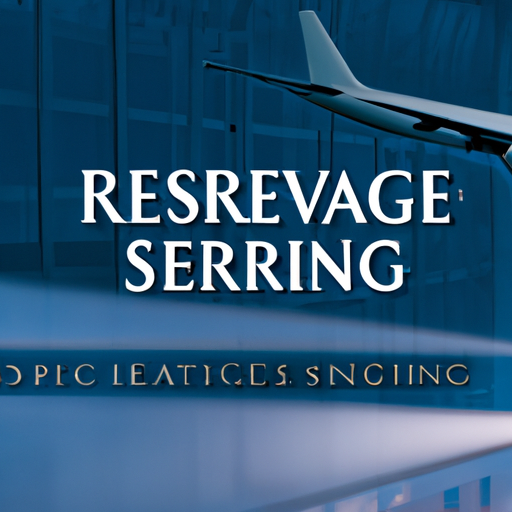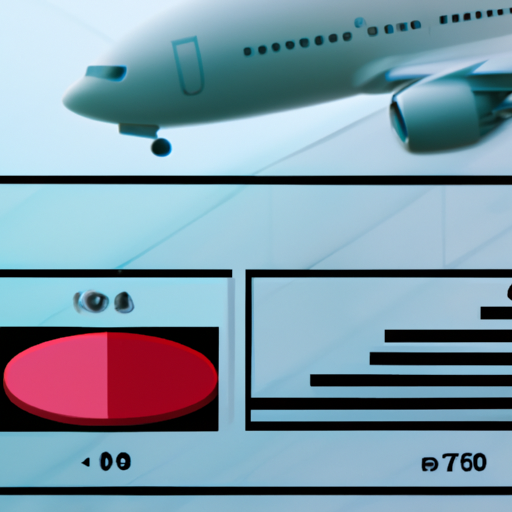
The Importance of Prioritizing Air Travel Improvements in the U.S
Air travel is an essential mode of transportation in the United States, connecting people from coast to coast and facilitating economic growth. However, the current state of air travel infrastructure in the country leaves much to be desired. It is crucial for the U.S. Senate to prioritize air travel improvements to ensure a safe, efficient, and enjoyable experience for all passengers.
One of the primary reasons why air travel improvements should be a top priority is safety. The safety of passengers should always be the foremost concern when it comes to any form of transportation. While air travel is generally considered safe, there is always room for improvement. Upgrading and modernizing airports, enhancing security measures, and investing in advanced technology can significantly enhance the safety of air travel.
Efficiency is another key aspect that needs attention. Airports across the country often face congestion, leading to delays and frustration for passengers. By prioritizing air travel improvements, the U.S. Senate can address these issues and ensure a smoother and more efficient travel experience. This can be achieved by expanding existing airports, building new ones in areas with high demand, and implementing advanced air traffic control systems.
Moreover, investing in air travel improvements can have a positive impact on the economy. The aviation industry plays a vital role in driving economic growth, creating jobs, and attracting tourism. By enhancing the infrastructure and services related to air travel, the U.S. Senate can stimulate economic activity and generate more revenue. This, in turn, can lead to job creation and increased prosperity for communities across the country.
In addition to safety, efficiency, and economic benefits, prioritizing air travel improvements can also contribute to a more enjoyable travel experience for passengers. Airports are often seen as stressful and chaotic environments, but with the right improvements, they can become more comfortable and passenger-friendly. This can include better amenities, improved accessibility for individuals with disabilities, and enhanced customer service. By investing in these areas, the U.S. Senate can make air travel a more pleasant experience for everyone.
Furthermore, air travel improvements can also have positive environmental impacts. The aviation industry is a significant contributor to greenhouse gas emissions, and reducing its carbon footprint is crucial for combating climate change. By investing in sustainable technologies and practices, such as biofuels and electric aircraft, the U.S. Senate can help reduce the environmental impact of air travel. This not only benefits the planet but also promotes a more sustainable and responsible approach to transportation.
In conclusion, prioritizing air travel improvements in the United States is of utmost importance. By focusing on safety, efficiency, economic benefits, passenger experience, and environmental sustainability, the U.S. Senate can make significant strides in enhancing the air travel infrastructure. This will not only benefit passengers but also contribute to the overall growth and development of the country. It is time to prioritize air travel improvements and ensure a brighter future for air travel in the United States.
Key Challenges and Solutions for Enhancing Air Travel in the U.S

Air travel is an essential mode of transportation for millions of people in the United States. Whether it’s for business or leisure, flying allows individuals to reach their destinations quickly and efficiently. However, there are several key challenges that need to be addressed in order to enhance air travel in the U.S. It is crucial for the U.S. Senate to prioritize these improvements to ensure a better flying experience for all.
One of the major challenges facing air travel in the U.S. is outdated infrastructure. Many airports across the country are in desperate need of modernization. This includes upgrading runways, terminals, and air traffic control systems. Without these improvements, airports will continue to struggle with congestion and delays, leading to frustrated passengers and decreased efficiency.
Another challenge is the lack of investment in technology. In today’s digital age, it is essential for airports to embrace new technologies that can streamline the travel process. For example, implementing biometric screening systems can enhance security while also reducing wait times for passengers. Additionally, investing in advanced baggage handling systems can help prevent lost luggage and improve overall efficiency.
Furthermore, the U.S. Senate must address the issue of airline competition. Currently, a handful of major airlines dominate the industry, leading to limited choices for consumers. This lack of competition often results in higher ticket prices and reduced quality of service. By promoting fair competition and encouraging the entry of new airlines into the market, the Senate can help drive down prices and improve the overall flying experience.
In addition to these challenges, the U.S. Senate should also prioritize environmental sustainability in air travel. The aviation industry is a significant contributor to greenhouse gas emissions, which contribute to climate change. It is crucial for the Senate to support initiatives that promote the use of sustainable aviation fuels and invest in research and development of cleaner aircraft technologies. By doing so, the U.S. can lead the way in reducing the environmental impact of air travel.
To address these challenges, the U.S. Senate must work closely with industry stakeholders, including airlines, airports, and regulatory agencies. Collaboration is key to finding effective solutions that benefit all parties involved. By fostering open communication and cooperation, the Senate can ensure that the needs and concerns of all stakeholders are taken into account.
In conclusion, enhancing air travel in the U.S. requires addressing key challenges such as outdated infrastructure, lack of investment in technology, limited competition, and environmental sustainability. The U.S. Senate plays a crucial role in prioritizing these improvements and working towards solutions that benefit both passengers and the industry as a whole. By investing in modernization, promoting competition, and supporting sustainability initiatives, the Senate can help create a better flying experience for all. It is time to prioritize air travel improvements and ensure that the U.S. remains a leader in the aviation industry.
The Role of the U.S. Senate in Driving Air Travel Improvements
Air travel has become an integral part of our lives, connecting people and businesses across the globe. As air travel continues to grow, it is crucial for the U.S. Senate to prioritize improvements in this sector. The Senate plays a vital role in driving air travel improvements, and it is essential for them to recognize the significance of this responsibility.
One of the key areas where the Senate can make a difference is in the modernization of airports. Many airports in the United States are outdated and lack the necessary infrastructure to handle the increasing number of passengers. By investing in airport modernization, the Senate can ensure that airports are equipped with state-of-the-art facilities and technologies that enhance efficiency and passenger experience.
Furthermore, the Senate can work towards improving air traffic control systems. Outdated air traffic control systems can lead to delays and inefficiencies in air travel. By investing in advanced technologies and infrastructure, the Senate can help streamline air traffic control, reducing delays and improving safety. This would not only benefit passengers but also airlines and the overall economy.
Another area where the Senate can drive air travel improvements is in the realm of security. Ensuring the safety of passengers is of utmost importance, and the Senate can play a crucial role in enhancing security measures. By working closely with relevant agencies and stakeholders, the Senate can develop and implement policies that strengthen security protocols without compromising on efficiency and convenience for travelers.
In addition to infrastructure and security, the Senate can also focus on improving the overall passenger experience. Long security lines, cramped seating, and limited amenities are some of the common complaints of air travelers. By addressing these issues, the Senate can make air travel more comfortable and enjoyable for passengers. This could include advocating for better passenger rights, promoting initiatives that enhance customer service, and encouraging airlines to invest in passenger-centric improvements.
Moreover, the Senate can prioritize environmental sustainability in air travel. The aviation industry is a significant contributor to greenhouse gas emissions, and it is crucial to address this issue. The Senate can support research and development of sustainable aviation fuels, incentivize airlines to adopt cleaner technologies, and promote policies that reduce the carbon footprint of air travel. By taking a proactive approach towards environmental sustainability, the Senate can contribute to a greener future for air travel.
It is important for the Senate to recognize that air travel improvements have far-reaching implications. A well-functioning air travel system not only benefits passengers but also drives economic growth and facilitates global connectivity. By prioritizing air travel improvements, the Senate can ensure that the United States remains at the forefront of the aviation industry, fostering innovation and competitiveness.
In conclusion, the U.S. Senate plays a crucial role in driving air travel improvements. By prioritizing airport modernization, improving air traffic control systems, enhancing security measures, focusing on passenger experience, and promoting environmental sustainability, the Senate can make a significant impact on the aviation industry. It is essential for the Senate to recognize the importance of this responsibility and take proactive steps towards improving air travel for the benefit of all stakeholders.


